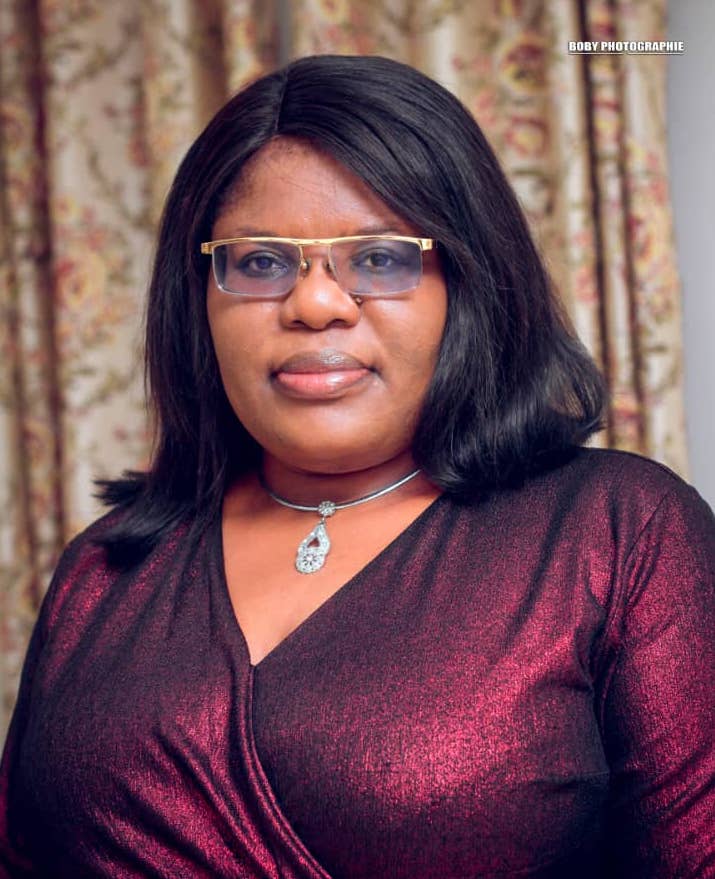Background
Born on October 4, 1976, Enobong started her primary Education at Starkville Elementary School, Mississippi, USA. Upon returning to Nigeria, she attended Command Children’s School Calabar, where she completed her primary Education in 1987. She proceeded to the prestigious Federal Government Girls College Calabar for her secondary education and completed in flying colours in 1993. In 1995, Enobong gained admission into University of Uyo and completed with a second class upper division in Economics in year 2000. The quest for knowledge led her to enroll for the Master’s degree programme in year 2005. She also acquired a Post graduate Diploma in Education (PGDE) qualifying her as a professional teacher. Propelled by the desire to make a career as an academic, Enobong enrolled for the Doctor of Philosophy (Ph.D) programme in Economic in University of Uyo and has completed her course work as at date – awaiting dissertation.
Enobong is a devout Christian and a member of Grace Family. She is also an intercessor and a member of Intercessors for Nigeria (Akwa Ibom House of Prayer). Her simple mien and generosity has attracted so many people to her, which makes her a grass root mobiliser and a strong political factor in her constituency. Her high sense of industry, which has made her a player in the business world, has always made her self- reliant and able to take care of others. She is married to Dr. Mbobo Erasmus Mbobo (a Chartered Accountant), and the marriage is blessed with children.
Career
Mrs. Enobong Mbobo has an impressive career record that spans from being a Secondary School teacher to an Administrative Officer in the University and eventually a University Lecturer. Prior to joining the academia, Mrs Mbobo worked as an Administrative Officer in University of Uyo, where she rose to the position of Assistant Registrar, before converting into lecturing. Her first teaching experience was with the Akwa Ibom State Secondary School Board, where she was engaged as an Economic Teacher in year 2002. This appointment took her to several secondary schools in Akwa Ibom State, until year 2010, when she transferred her services to University of Uyo. The first work experience of Mrs Enobong Mbobo was with Mobil Producing Nigeria Unlimited (QIT) Ibeno where she did her NYSC programme between year 2000 and 2001. All these experiences have contributed to enabling her fit in easily to any assignments given to her.
She has over six(6) publications to her name.
In August 2020, Enobong was appointed a commissioner for education by His Excellency, Mr Udom Emmanuel. Her brief stay in the ministry saw her assisting the government to have a smooth resumption of schools during the Covid 19 pandemic. This was a great feat as there was no example to follow. Also, her tenure saw the fencing of secondary schools, recruitment of security men and many other stabilizing actions at all levels of education in the state.
By March 2021, Mrs Mbobo was redeployed as the pioneer Commissioner for the Ministry of Rural Development and Cooperatives. In the period of her stay there, a number of projects were successfully executed under her tenacious and committed supervision. For instance, some villages that had never had light since their inception were successfully connected to the national grid under the Power for all program of the former governor, many other villages where opened up and given access roads through mass grading and provision of culverts. A classical example is the ikot essang/Minya/Ekim road in Ikot Abasi/Mkpat Enin which had been impassable for over 15 years. In the Cooperative sector, the oil palm producing depot at Essien Udim was upgraded to cater to the production needs of the people. Cooperatives received a boost and underwent a no of trainings and workshops to give them a better understanding of how to utilize the concept of coming together for greater profit. Today, when talking about the cooperative movement in Nigeria, Akwa Ibom is among the top three states cited.

